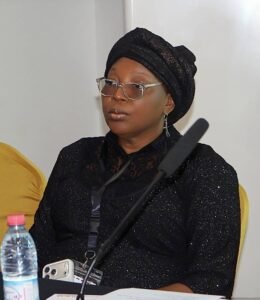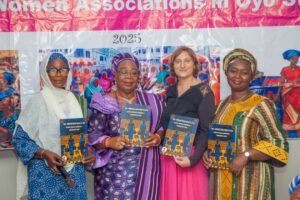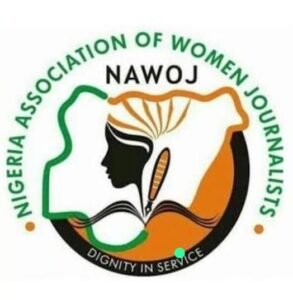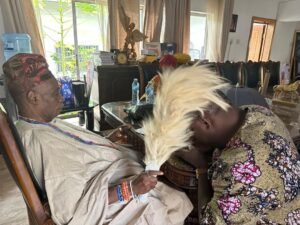SPECIAL REPORT: Selling Hope or Selling Health? Ilubinrin Exposes the Growing Trend of Egg Donation for Money Among Nigerian Female Students.
By Temilade Aloko | May 22, 2025
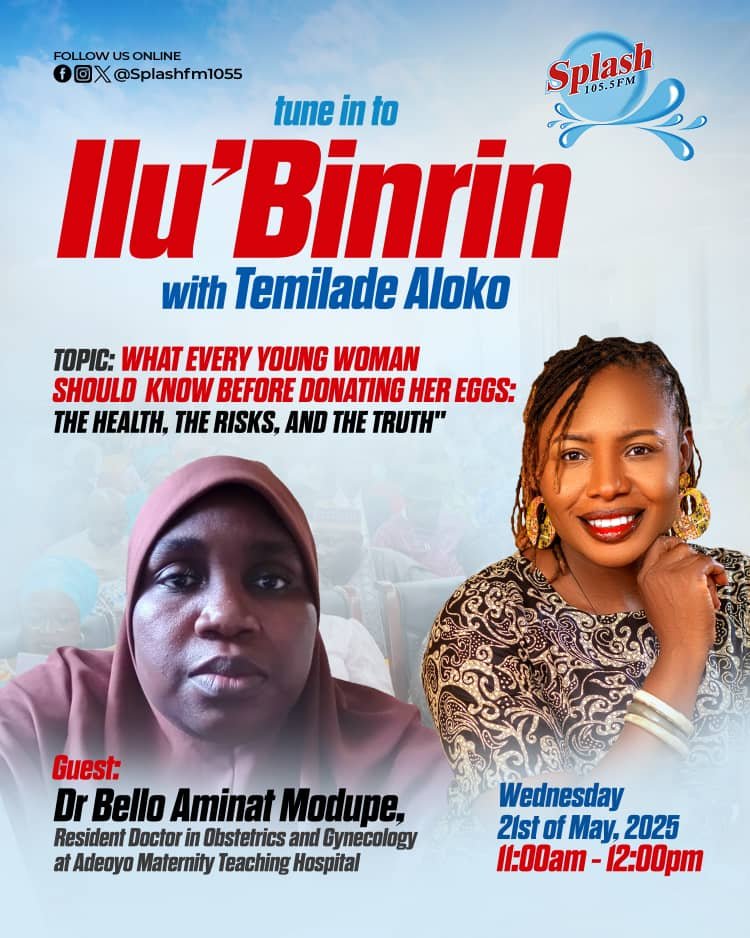
On the May 21, 2025 episode of Ilubinrin, the popular Yoruba radio programme aired live on Splash FM, host Temilade Aloko opened the airwaves to a controversial but pressing issue: the increasing trend of young women—especially students—donating their eggs for financial gain.
Guest expert Dr. Bello Aminat Modupe, a resident doctor in obstetrics and gynecology at Adeoyo Maternity Teaching Hospital, shed light on the emotional, legal, and health-related implications of egg donation, while strongly condemning the commercialization of this deeply personal medical procedure.
Egg Donation: A Noble Act or Financial Trap?
Egg donation, originally intended as a compassionate way for women to help others struggling with infertility, is becoming a quick cash option for many young Nigerian women. With offers ranging from ₦100,000 to ₦300,000 or more, some students are lured by fertility agencies into undergoing egg retrieval procedures without adequate counseling, medical guidance, or legal protection.
“Some of these students are not even aware of the full risks,” Dr. Bello said. “They see the money, not the long-term health and emotional consequences.”
The lack of regulation has made it easier for unlicensed clinics and middlemen to exploit vulnerable students—many of whom are under financial pressure from tuition fees, living costs, or family obligations.
Health Risks with Lasting Consequences
Dr. Bello explained that egg donation involves hormonal injections, egg retrieval under ultrasound, and strict medical monitoring. But when done in shady clinics or under rushed conditions, the procedure can lead to infections, equipment misuse, ovarian hyperstimulation syndrome, and emotional distress.
“Some women experience depression afterward. Some go through the process multiple times without knowing the impact it could have on their fertility later,” she warned.
In many cases, no psychological evaluation or proper aftercare is offered. For students who are not emotionally or physically prepared, the consequences can be devastating.

The Legal Grey Area
Despite the rise in egg donation in Nigeria, the legal framework remains dangerously vague. The National Health Act of 2014 is the only legislation that indirectly addresses the issue—Section 53 prohibits the buying or selling of human tissue, which includes eggs, but does not clearly outline the rights of donors or the responsibilities of clinics.
There’s no law that specifies how many times a woman can donate, who qualifies, or what compensation is ethical, It’s a legal vacuum that leaves donors unprotected.
She stressed that any student considering egg donation should have legal representation, to ensure they are not coerced or misinformed.
Government Must Act
Dr. Bello called on the Federal Government to take urgent action by cracking down on unlicensed fertility centers and creating clear policies and protections for egg donors.
“This is not just a health issue—it’s a human rights issue,” she declared.
She emphasized that egg donation should never be about financial desperation, but rather about helping others through informed, voluntary, and medically supervised choices.
Reframing the Narrative
Through this episode, Ilubinrin has again broken cultural silence and empowered women with knowledge. Listeners were reminded that reproductive health decisions must never be driven by poverty or lack of information.
“We must stop seeing women’s bodies as tools for financial survival,” Temilade Aloko concluded. “Instead, we must protect them—through education, legislation, and compassion.”
Temilade Aloko is a broadcast journalist and advocate for women’s health and rights. She hosts Ilubinrin every Wednesday on Splash FM, Ibadan.


